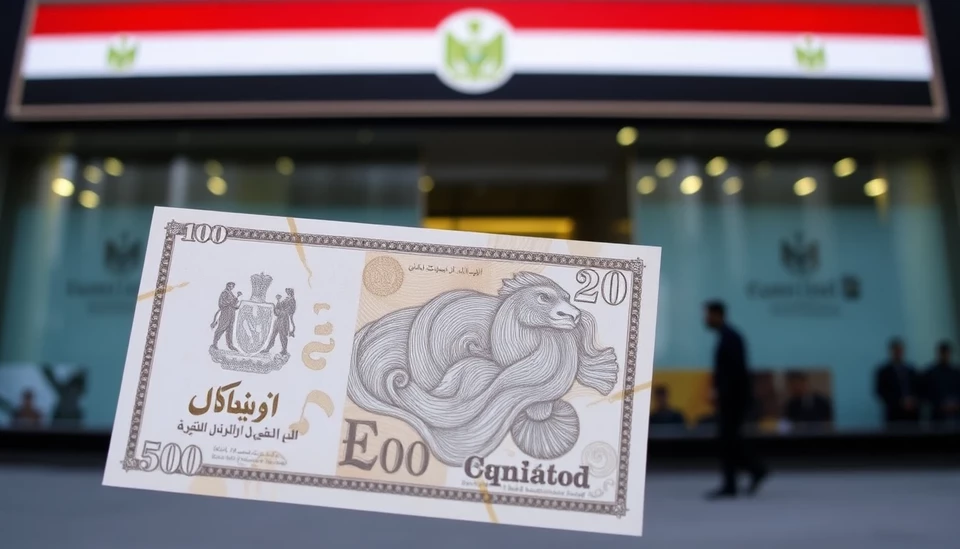
In a concerning development for Egypt's economy, the national currency, the Egyptian pound, has hit its lowest value since March. This decline comes at a critical juncture as Egypt is engaged in ongoing discussions with the International Monetary Fund (IMF) regarding a bailout agreement and economic reforms.
The Egyptian pound experienced a significant depreciation on the foreign exchange market, prompting fears of inflation and economic instability. Market analysts suggest that the drop signals a lack of investor confidence in the country's economic prospects as the government navigates its relationship with the IMF.
Recent data revealed that the pound was trading at approximately 37.5 to the U.S. dollar, reflecting broader concerns about Egypt's financial health amidst rising inflation rates and challenges in securing foreign investments. The depreciation of the currency could further complicate the economic environment, leading to increased prices for imported goods and a deeper economic crisis for the country, which is already grappling with soaring living costs.
The ongoing negotiations with the IMF are pivotal. Egypt has been seeking support from the fund to stabilize its economy, which has been plagued by years of economic unrest and external shocks. As discussions unfold, the outcomes could fundamentally alter the financial landscape, affecting everything from currency valuation to public service funding.
Investor sentiment remains cautious, with many waiting for concrete results from the IMF reviews. Concerns about the central bank's policies and the government's ability to implement necessary reforms are contributing to the decline in the pound's value. Additionally, domestic pressures, including rising unemployment rates and social unrest, are complicating the economic recovery efforts.
As the situation evolves, the implications for Egypt's economy could be significant. Analysts are closely monitoring the effects of the currency decline on consumer prices and overall economic stability. The urgency of addressing these economic challenges is underscored by the necessity for effective governance and transparent communication with both domestic and international stakeholders.
This recent drop in the Egyptian pound's value not only reflects current economic woes but also raises questions about the future trajectory of Egypt's financial policy and its relationship with global financial institutions. As the nation strives to emerge from its economic difficulties, the stakes could not be higher.
#Egypt #EgyptianPound #IMF #EconomicCrisis #CurrencyDecline #FinancialStability #Inflation #ForeignInvestments #MiddleEastEconomy
Author: Daniel Foster




